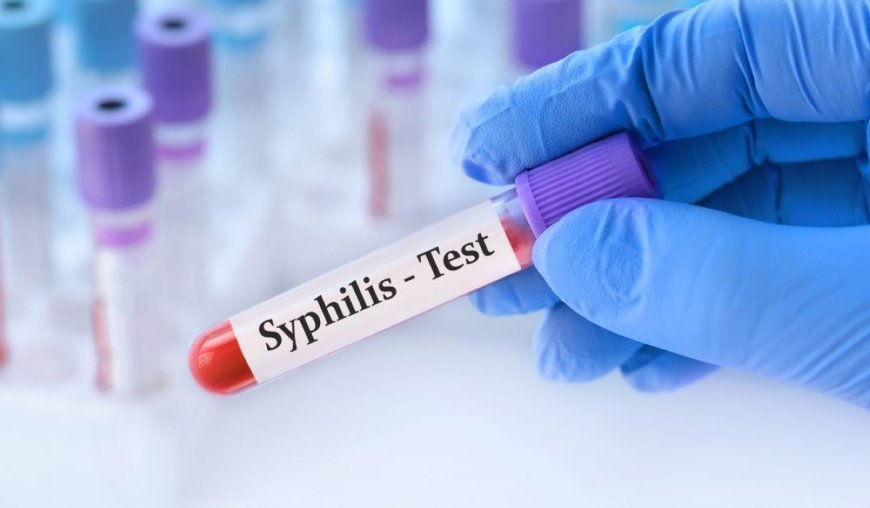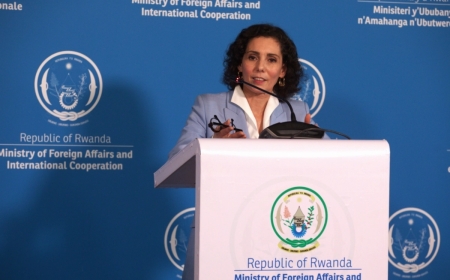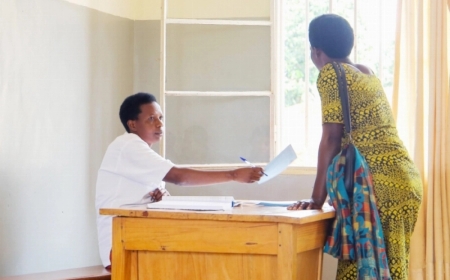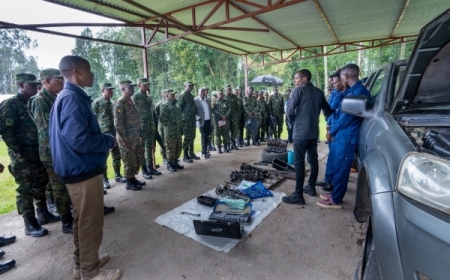Rwanda plans to roll out rapid tests for congenital syphilis

Rwanda is preparing to introduce a new rapid diagnostic test in antenatal clinics across the country as part of efforts to eliminate congenital syphilis by 2030.
Congenital syphilis occurs when a pregnant woman with untreated syphilis passes the infection to her baby during pregnancy or delivery. The disease can lead to stillbirths, low birth weight, brain damage, or even death of the newborn.
Dr. Charles Berabose, the Director of Sexually Transmitted Infections and Other Blood-Borne Infections at Rwanda Biomedical Center (RBC), said the country is set to tackle a challenge in preventing congenital syphilis, missed or delayed diagnosis, by rolling out rapid testing early next year.
“Syphilis often doesn’t show symptoms. That’s the biggest difficulty as many women don’t know they have it, and by the time it’s detected, the baby may already be at risk,” Berabose said.
The official noted that currently, pregnant women in Rwanda are tested for syphilis using a lab-based method known as RPR (Rapid Plasma Reagin), which screens blood for the infection. While the test takes about two hours, delays happen when results aren’t returned the same day, or when patients don’t come back for them.
To shorten that window, he noted that RBC plans to roll out a rapid test that can be done during routine antenatal visits, with results ready within 30 minutes. It’s part of a package known as the “triple elimination test panel,” which screens for syphilis, HIV, and hepatitis B. Each disease is tested separately, but all three kits are bundled together.
“The test can be done right in the antenatal room. That will help us catch infections earlier and start treatment right away. Rwanda has already trained lab technicians nationwide to carry out the RPR test and plans to train health workers on the new kits ahead of their launch,” Dr Berabose said.
The country is working toward a World Health Organization (WHO) target of reducing congenital syphilis to fewer than 50 cases per 100,000 live births. Rwanda is a signatory to the WHO regional goal and has aligned its national healthcare strategy accordingly, he noted.
According to Dr Berabose, one of Rwanda’s strengths is its high antenatal care attendance. About 98 percent of pregnant women attend at least one antenatal care visit, which is an opportunity for testing.
“If women don’t show up to health facilities, we can’t test or treat them, but with nearly all pregnant women attending at least once, we have a chance to screen widely and prevent mother-to-child transmission,” he said.
The treatment for syphilis is a series of three weekly injections of benzathine penicillin. This is the same for all patients, including pregnant women. If treatment is missed or delayed, the risk to the baby increases, he added.
Dr. Berabose explained that untreated maternal syphilis can result in stillbirth, premature birth, developmental delays, or neurological damage. In some cases, the baby may die before or shortly after delivery.
“Congenital syphilis can be fatal, even if the baby survives, they may face lifelong health problems.”
He added that the effort to eliminate the disease also involves community health workers, who raise awareness about antenatal care visits at the village level. Local leaders can also help spread these messages in regular community meetings.
“Stakeholders, including health authorities, international partners, and diagnostic suppliers are involved in supplying test kits, training personnel, and monitoring data,” Dr. Berabose said.
Challenges in prevention
Dr Gilbert Mbaraga, a medical officer with the AIDS Healthcare Foundation (AHF), said that while Rwanda is making progress in fighting congenital syphilis, gaps remain.
“Some women arrive late for antenatal care or don’t come at all. Even when they do, screening for syphilis can be delayed or missed," said Mbaraga.
"Many women are only tested once during pregnancy, usually at the first visit. If a woman contracts syphilis later, it can go undetected until delivery.”
He added that women are often treated while their partners are not, which increases the risk of reinfection. Stigma and low male involvement make partner testing difficult.
Mbaraga noted that limited coordination of intervention programmes, shortage of trained health workers, and inadequate laboratory facilities are some of the challenges affecting the health system.
He noted that studies show syphilis prevalence among pregnant women in Rwanda ranges between 1 and 6 percent.
To reduce transmission, Dr. Mbaraga said testing should happen at the first antenatal visit and again before delivery. All positive cases must receive treatment, he said, and exposed newborns should be treated at birth. He added that testing and condom use can contribute significantly to the targeted elimination of congenital syphilis..
































































